Donald Trump Signs Republican Party Loyalty Oath
"This is the best, quickest and easiest way to ensure victory for the Republicans," the GOP front-runner said. "In addition, I'm leading in every single poll."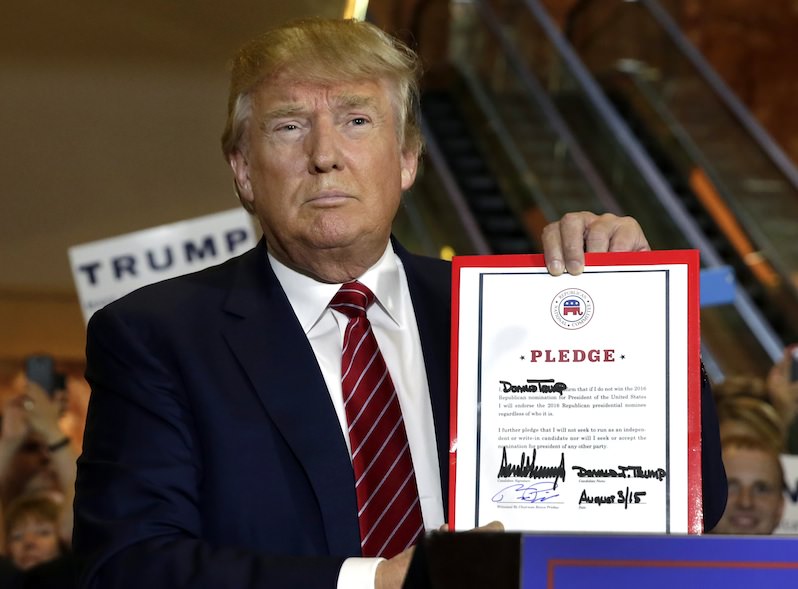 Donald Trump holds his pledge during a news conference at Trump Tower in New York on Thursday. (Richard Drew / AP)
Donald Trump holds his pledge during a news conference at Trump Tower in New York on Thursday. (Richard Drew / AP)
Now we’ll see whether the magic works inside the Republican Party’s big and unruly tent as well as it did outside.
Donald Trump’s decision to sign a GOP loyalty oath — pledging to support the party’s eventual nominee, even if it’s someone else — was more practical than partisan. But does it make the ultimate outsider look like, pardon the strong language, just another politician?
You will not be surprised to learn that Trump shrugs off the question.
“I’ve been treated very fairly by the Republican Party and the Republican National Committee,” he told me by phone, shortly before signing the pledge. “This is the best, quickest and easiest way to ensure victory for the Republicans. In addition, I’m leading in every single poll.”
Indeed, the Real Clear Politics polling average has Trump far ahead of the pack with 27.2 percent support among Republican voters. Retired neurosurgeon Ben Carson, another outsider, is a distant second with 13.2 percent. Not one of the party establishment’s preferred candidates is even in double digits.
In the Huffington Post’s average of polls, Trump registers even higher at 30.7 percent. I mention this because HuffPost is still sticking with its July decision to cover Trump’s campaign in the entertainment section of the website rather than the politics section. Must have seemed like a good idea at the time.
“You know, when I got to 14 or 15 percent in the polls, a lot of the commentators and the political experts said OK, that’s his cap,” Trump told me. “Then I got to 20, and they said finally, there’s the cap. They stopped saying it when I got to 25. And now I’m at 30 percent — and that’s with 17 people in the race.”
Whether you find Trump’s rise appalling or appealing, it has been a remarkable political phenomenon, fueled by a rejection of traditional politics and politicians. If you aggregate the support for Trump, Carson and businesswoman Carly Fiorina, about half the Republican Party wants a presidential nominee who has never held elective office.
RNC Chairman Reince Priebus asked all candidates to take the loyalty oath, but the only signature he really wanted was Trump’s. In the first GOP debate, Trump refused to pledge he would not make an independent or third-party run for the White House next fall — which could guarantee victory for the Democratic nominee.
Trump said at the time that he wanted to see if he would be treated “fairly” by the Republican Party. Opponents have been pounding him on the loyalty issue, but to no discernible effect. What happened between then and now is that Trump took a hard look at the numbers.
To run in the general election as an independent, he would have to undertake — and underwrite — an expensive effort in each of 50 states to get on the ballot. This would require collecting signatures and, in some states, perhaps technically forming a new political party.
Many states have “sore loser” laws that seek to prohibit candidates from appearing on the ballot as an independent or third-party candidate after previously being a candidate in another party. Ohio Secretary of State Jon Husted, who happens to be a Republican, has concluded that since Trump filed paperwork with federal election officials to run for the GOP nomination, he’s a Republican as far as Ohio is concerned.
Courts generally lean toward granting ballot access rather than denying it, especially in a presidential race. But even if Trump got on the ballot nationwide and managed to win a sizable number of electoral votes, if no candidate won an electoral majority the election would be decided by the House of Representatives — where no independent or third-party candidate would have a prayer of winning.
So by signing the pledge, Trump is essentially promising not to embark on an expensive and ultimately futile course of action. But here’s my question: How do Trump’s most fervent supporters react?
It’s true that Priebus came to Trump Tower for a pledge-signing ceremony, as if the party were a supplicant and Trump the grantor of favors. But much of Trump’s appeal comes from the fact that he doesn’t speak or act like a politician. He has gotten to where he is — the undisputed Republican front-runner — by ostentatiously refusing to play by the rules. He can’t possibly win by coming across as just like the other hopefuls, calculated and measured and boring.
On the other hand, if Trump does win the nomination, now even Jeb Bush has to support him.
Eugene Robinson’s email address is [email protected].
© 2015, Washington Post Writers Group
Your support matters…Independent journalism is under threat and overshadowed by heavily funded mainstream media.
You can help level the playing field. Become a member.
Your tax-deductible contribution keeps us digging beneath the headlines to give you thought-provoking, investigative reporting and analysis that unearths what's really happening- without compromise.
Give today to support our courageous, independent journalists.

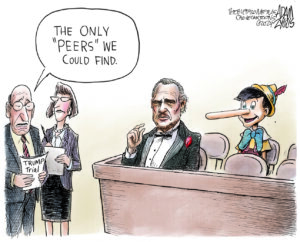

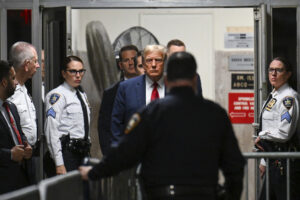
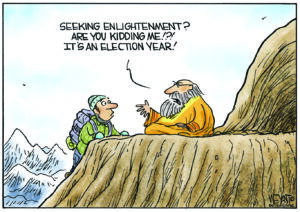
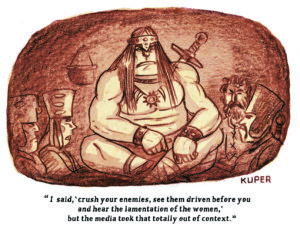
You need to be a supporter to comment.
There are currently no responses to this article.
Be the first to respond.